Shows
Pluriversal Cosmologies: “Stepping Softly on the Earth”
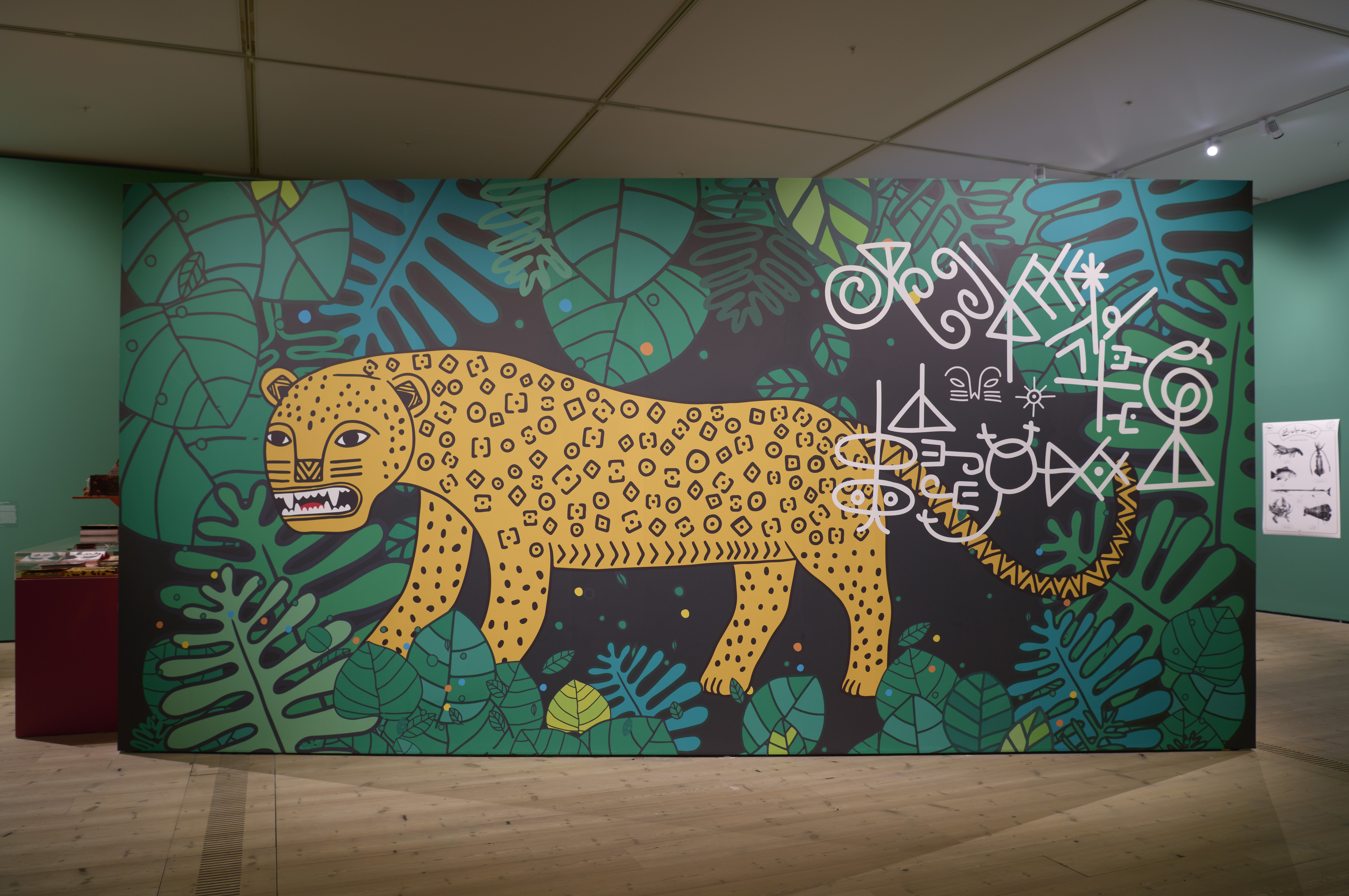

"Stepping Softly on the Earth"
Baltic Centre for Contemporary Art, Gateshead
November 18–April 14, 2024
For over a year, the project “Stepping Softly on the Earth” has been developed as a collaborative effort between a group of thinkers, writers, and artists heavily influenced by Colombian-American anthropologist Arturo Escobar’s theoretical framework of pluriverse: a world in which many worlds coexist and support each other. After hosting a series of research labs in various forms, the project culminated in an eponymous exhibition co-curated by Irene Aristizábal and Kinnari Saraiya, which brought together the work of 20, mostly non-Western and Indigenous artists at the Baltic Centre for Contemporary Art, Gateshead.
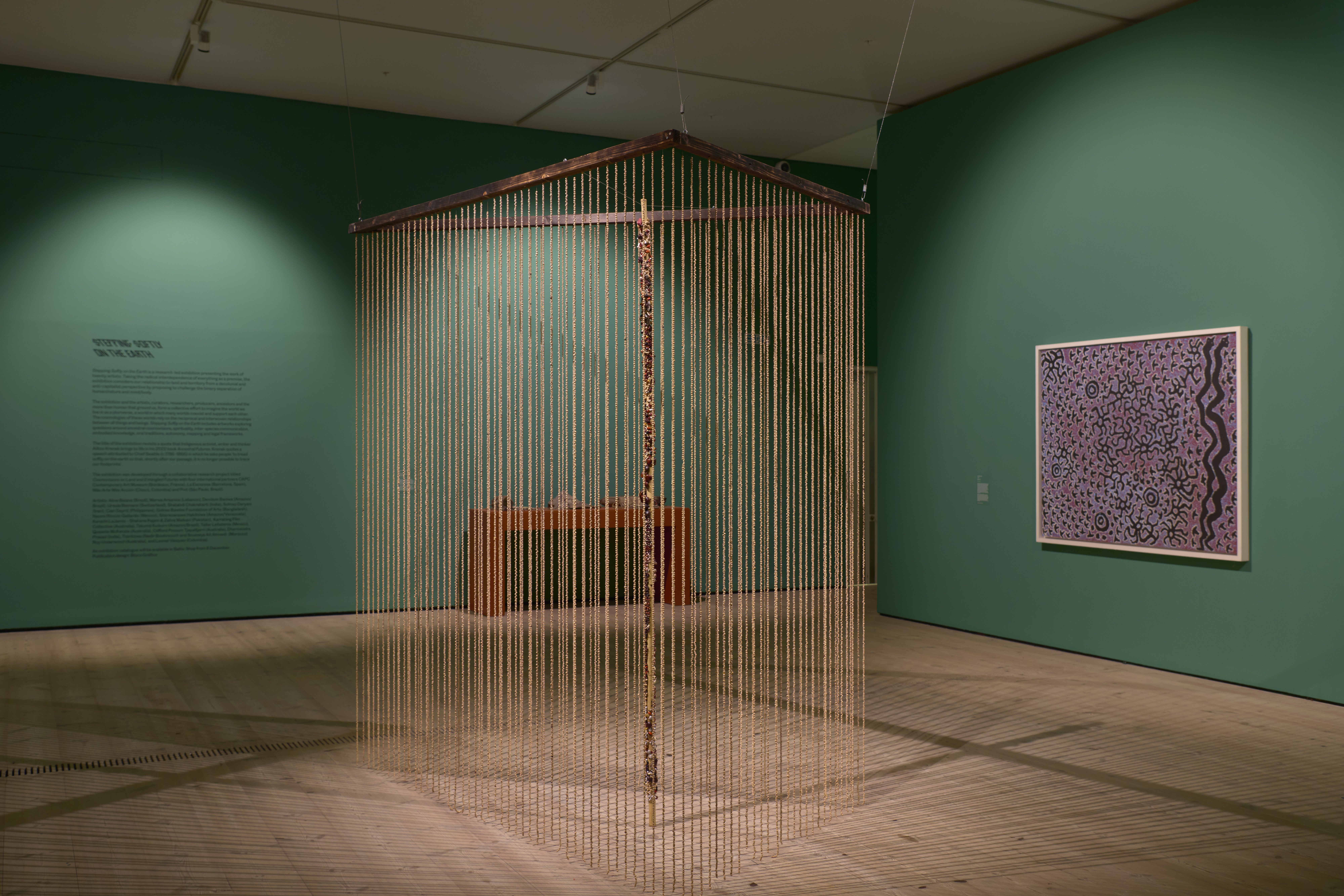
One of the resulting artworks is Earthseed or Archipelago #1 (2022), an installation by Brazilian artists Aline Baiana and Tapixi Guajajara (of the Indigenous Guajajara people) during a residency at La Escocesa in Autumn, 2022. As a collaborative installation, Baiana worked with neurodiverse participants to pierce soybeans, creating a beaded curtain that surrounds a pillar of various seeds, the latter of which symbolizes native peoples. The work provides commentary on Brazil’s colonial soybean monoculture, which was brought by Europeans to the New World in the 16th century. The curtain obstructs viewers from looking at the beaded pillar, turning spatial relations into a highly relevant critique of settler-colonialism.
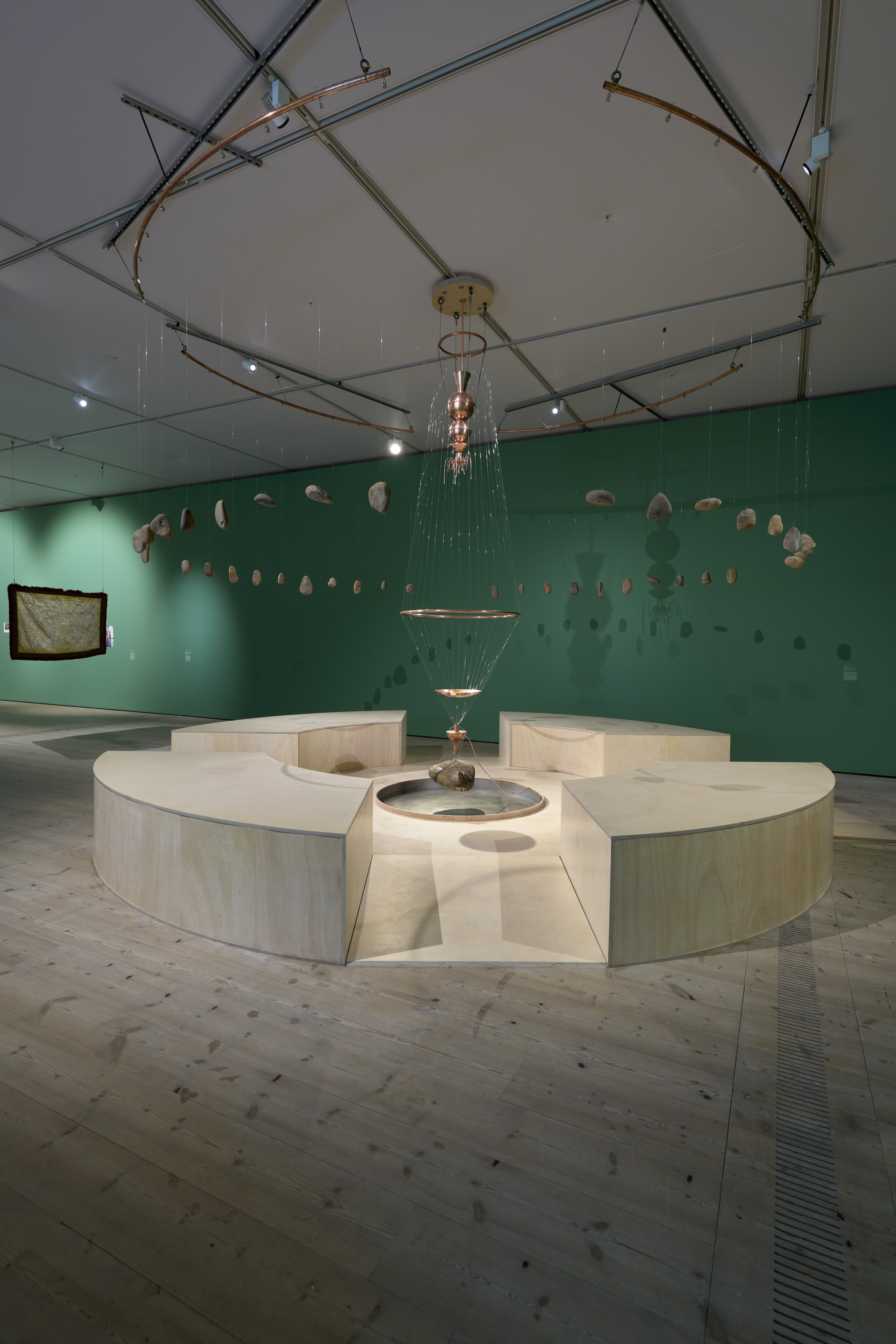
In a similar vein, the Colombian sound-based artist Leonel Vásquez continues his interest in sound and critical listening as a political act in Templo del agua, río Tyne (Water Temple, River Tyne) (2023). This living sound sculpture uses purified water from the local River Tyne and local rocks to surround the fountain-like bronze water instrument hung in midair, forming a suspended, sacred space that invites viewers to to pay tribute to water by listening to and meditating with the sound it creates. Vásquez thus reminds us of our relationship with water and other ways of listening before the colonial period. Mexico-based artist Naomi Rincón Gallardo also takes reference from her native culture, yet diverges into a different emotion. In her newly commissioned video work Eclipse (2023), the final chapter of her Tzitzimime Trilogy (2021–23), Gallardo creates a bastardized version of the Itzpapálotl, destructive obsidian butterflies from a Mesoamerican myth. There, Itzpapálotl come down from a darkened sky, searching for blood in a world where the dead, the undead, and the living merge together. Eclipse is a vivid reimagination of Indigenous culture through an unsettling energy, unseen in other works from the exhibition.
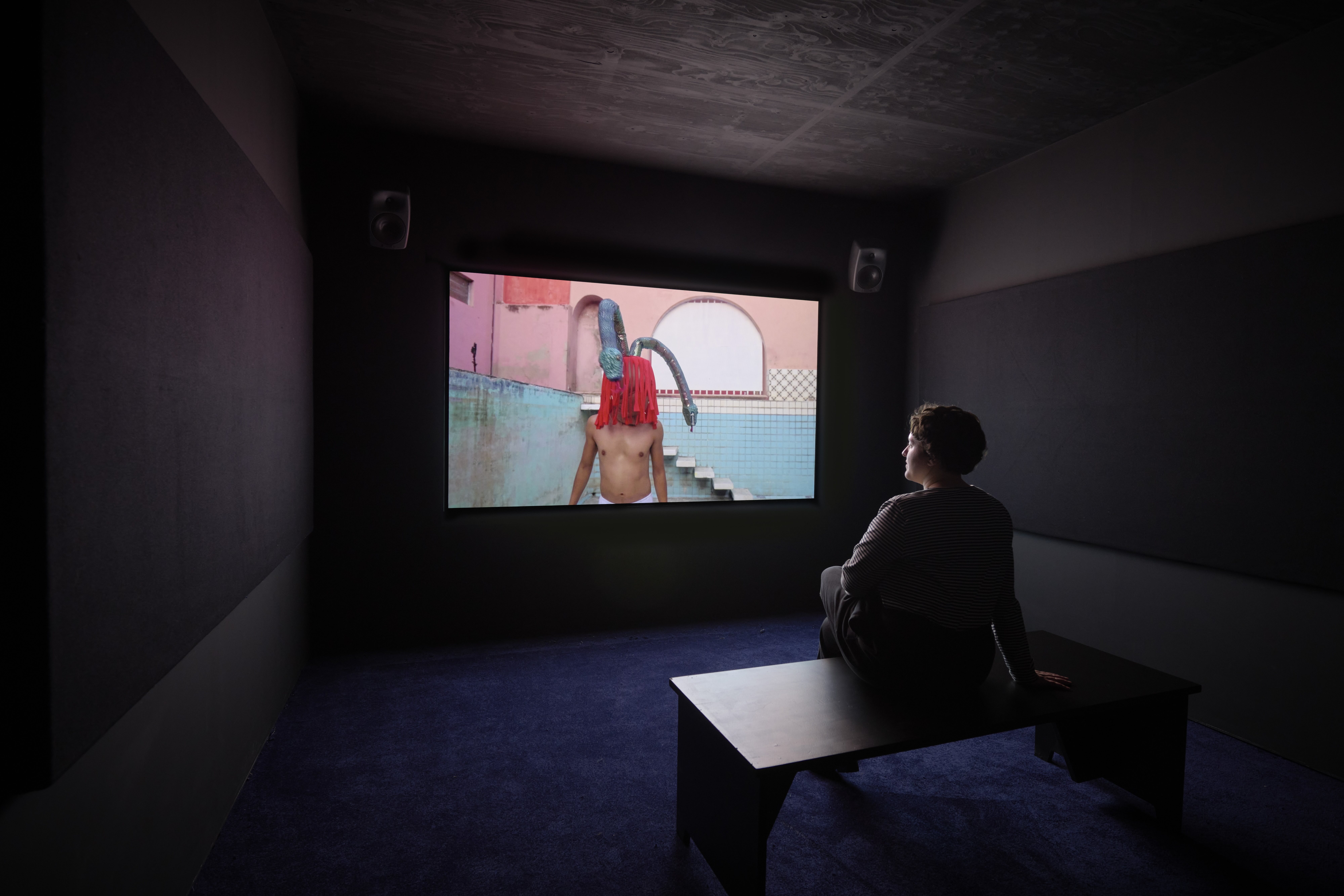
As a curatorial method to further decolonize our spatial awareness from the European white cube art space, several video works in the exhibition are placed in the middle of the room according to the shape of a river. One of these works is Marwa Arsanios’s Who Is Afraid of Ideology? Part 4: Reverse Shot (2022), which explores the question of possession through speculative fiction by presenting the possibility of imagining a land without ownership. In Ursula Biemann’s two-channel video work, Vocal Cognitive Territory (2022), key figures from the Inga community share their memories and Indigenous knowledge of the rainforest by talking about their belief system, the history the land they inhabit, and how they have been affected by colonization. While Arsanio searches for an alternative reality beyond capitalism, Biemann seeks persistence and sovereignty against colonial-capitalist frameworks.
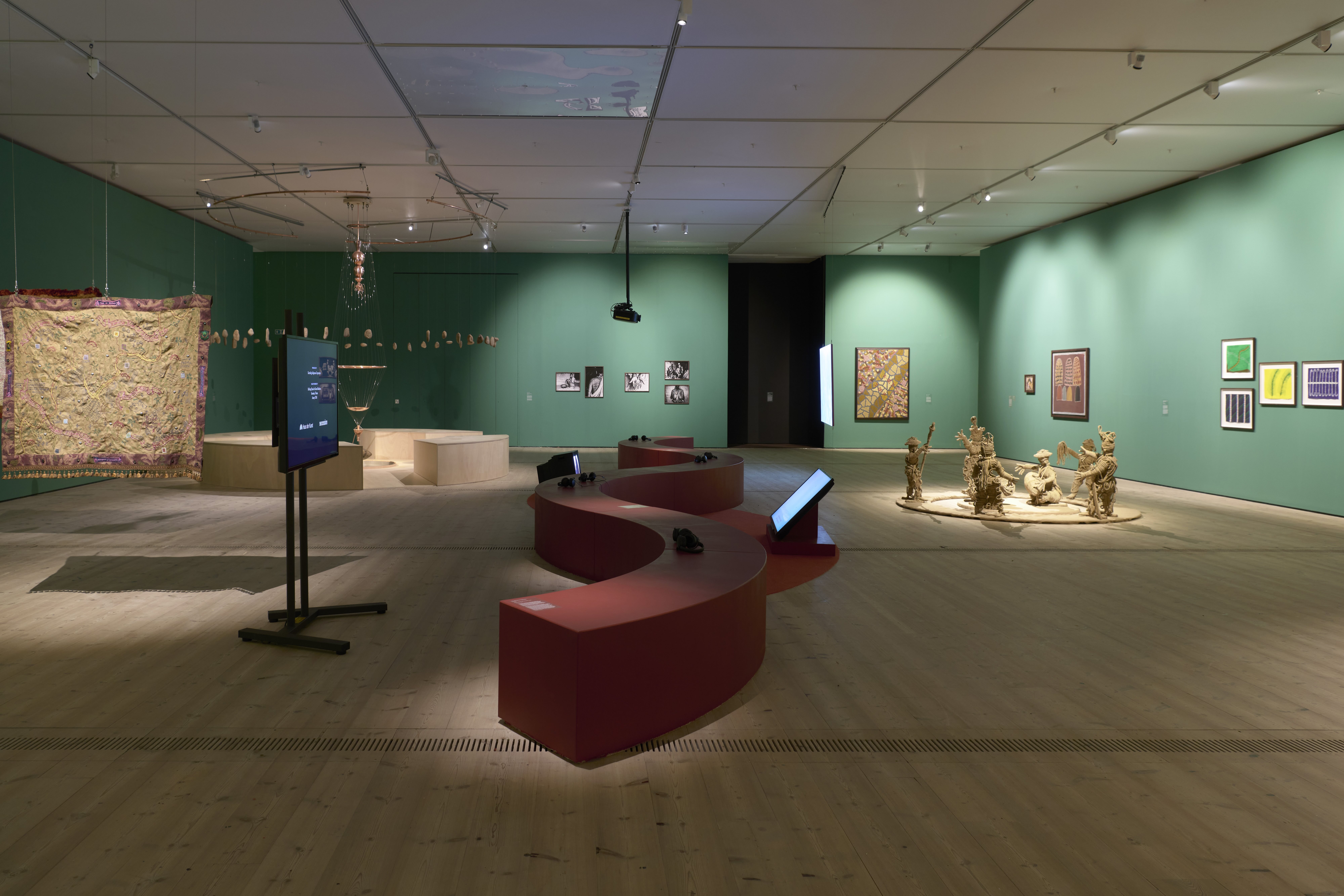
The exhibition “Stepping Softly on the Earth” approached our relationship to land and territory by presenting different Indigenous experiences, provoking questions about ancestral cosmologies, spirituality, inter-species communication, embodied knowledge, oral traditions, autonomy, mapping, and even legal frameworks. Aristizábal, the exhibition's co-curator, chose to “think about our relationship to place, land, and territory as a grounding experience to understand human existence from a decolonial perspective, moving away from a human-centered approach.” These works reconsider earthly realms as paradigmatic sites to start conversations and raise awareness about our concerns, encouraging a departure from the hegemonic modern Western worldview that positions humans at the center of existence.







